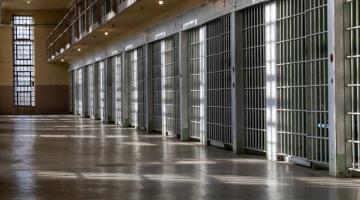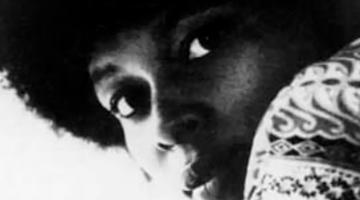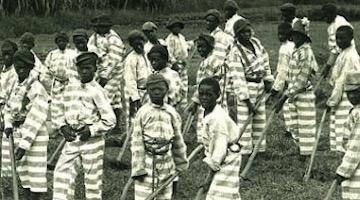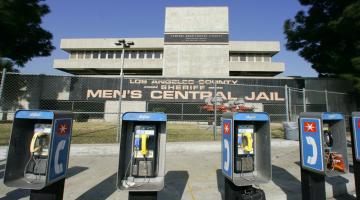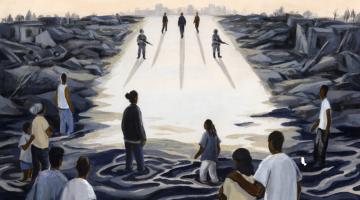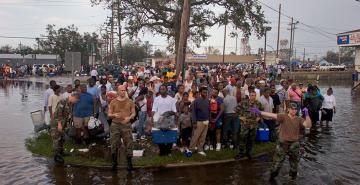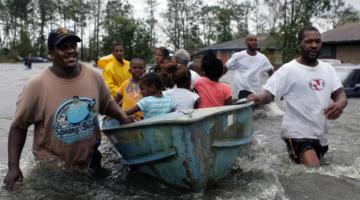Related Stories
Reuven Blau
After a damning revelation eight years ago, state leaders changed the make-up of the Parole Board to combat inequality.
Editors, The Black Agenda Review
Assata Shakur exposes the conditions faced by incarcerated Black women in a powerful 1978 essay.
Netfa Freeman
The US political elite and their elite press are using the fraudulent claims about a “crime wave” as an ideological offensive, a backlash, agai
Tamar Sarai Davis
The ‘slavery clause’ made the passage of restrictions targeting Black people like the Black Codes possible as well as convict leasing of
Lisa Armstrong
Prison officials could have prevented sickness and death by releasing those who were most vulnerable to coronavirus and least likely to reoffend —
Henry A. Giroux
The same activists who are working to defund the police are also part of a collective movement to bring an end to neoliberal capitalism.
Chris Gelardi
“Police can call you a gang member because they observed you with other gang members, who they declared gang members because they were with other g
Weihua Li, Beth Schwartzapfel, Michael R. Sisak and Camille Fassett
Judges, prosecutors and sheriffs in many states sent people home instead of to jail last year, but new data suggests the change is not lasting.
H. Claire Brown
The small world of prison food production is a microcosm of the American food system, which all too o#en functions as a race to the bottom.
Adam Mahoney
After first being forced to live in chemically toxic communities, Black and Brown people are then incarcerated in jails where they cannot escape so
More Stories
- Jon JeterA forgotten history of cross-racial labor solidarity in 1890s New Orleans offered a glimpse of a potential future. Its deliberate destruction set the stage for the city's modern transformation into a…
- Anthony Karefa Rogers-WrightTwenty years after Katrina, the disaster stands not as an anomaly but as a blueprint. Its aftermath reveals a template for imperial domination, where "natural" disasters become pretexts for…
- Raymond Nat Turner, BAR poet-in-residence"Ethnic cleansing called Katrina" is the latest from BAR's Poet-in-Residence.
- Jaribu HillJaribu Hill, Executive Director of the Mississippi Workers’ Center for Human Rights, recounts the aftermath of Hurricane Katrina on the Gulf Coast and the efforts to organize on behalf of the people.
- Glen Ford, BAR Executive Editor"Racism showed its ass in the days after August 29, 2005."

